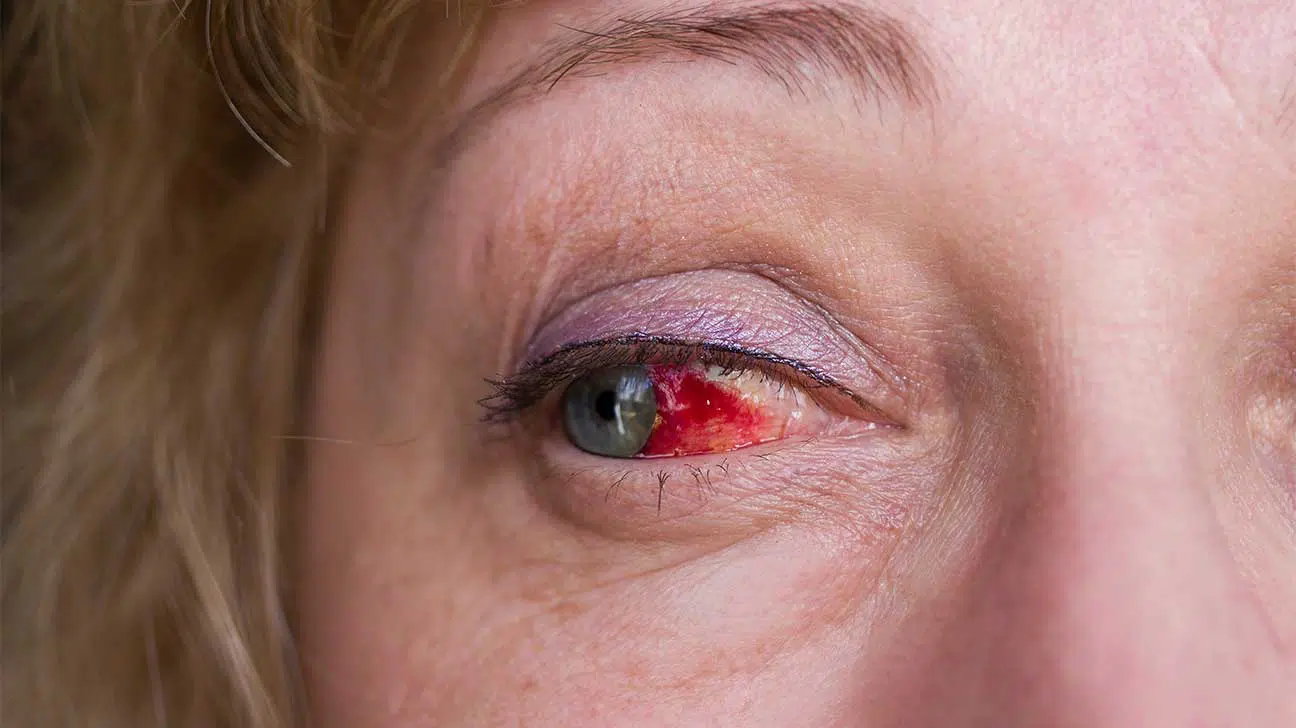What Are Heroin Eyes?
Heroin eyes is an expression specifically used to describe the way eyes change in response to the effects of heroin and other opioids.

Eye pupils are naturally sensitive to stimuli and will change in size, either growing (dilating) or shrinking (contracting). “Heroin eyes” refers to small or pinpoint pupils.
The eyes are one of the first parts of the body to show signs of heroin abuse or addiction. Eye health and movements reflect sudden changes in the nervous system caused by opioids.
The body has ways of showing external indications of internal changes, damage, and stress caused in every stage by any kind of substance abuse, from alcoholism to heroin addiction.
What Are Heroin Pupils?
“Heroin pupils” and “heroin eyes” both refer to abnormally constricted or small pupils. When a person has heroin pupils, the black center of their eyes may be very small.
What Does Heroin Do To Your Pupils?
Like other opioids, heroin depresses the body’s nervous system when it enters and attaches to opioid receptors. This affects the functions of the peripheral and central nervous systems.
When heroin enters the bloodstream and rushes to the brain, it interferes with the peripheral nervous system’s response to stimulation, which causes eye pupils to constrict (miosis).
Pupillary constriction, or “pinpoint pupils,” is an external indicator of recent heroin use and possibly overdose. This reaction is often referred to as “heroin eyes” or “heroin pupils.”
In the event of a heroin overdose, the pupils on heroin remain constricted and unnaturally unresponsive to changes in light.
Heroin abuse can cause irregularities in vision and abnormal eye movements. Drooping eyelids are symptomatic of extreme relaxation and drowsiness caused by repeated heroin use.
Other ocular symptoms and side effects of heroin abuse are:
- bloodshot eyes (similar to the effects of alcohol abuse)
- dark circles under the eyes
- unfocused or blurred vision
Prescription opioids including methadone and buprenorphine, which are prescribed in detox treatment programs, also cause miosis and other ocular symptoms similar to heroin use.
Does Heroin Dilate Pupils?
Heroin does not make your eyes dilate. Certain substances do cause dilated pupils, which occurs when your pupils become abnormally large and wide.
However, heroin has the opposite effect: through meiosis, heroin causes your pupils to become abnormally constricted.
Eye Infections Caused By Intravenous Heroin Use
Injecting heroin not only puts people who use this method at high risk of fatal overdose, but the use of dirty needles and contaminated heroin can cause a variety of infections all over the body.
Eyes are highly sensitive to infections, and severe eye infections that go untreated can spread to the retina and result in irreversible vision damage.
Endogenous Endophthalmitis
Studies have indicated a strong correlation between the rise of intravenous heroin use and the increase of a rare bacterial eye infection called endogenous endophthalmitis.
This infection is caused by contamination of the blood via injection and can cause tremendous damage to ocular health, even blindness.
Bacterial and viral infections, as well as blood-borne diseases like hepatitis, are a direct result of using dirty, contaminated needles for drug injection.
Symptoms of severe eye infections related to IV heroin abuse are:
- pain around the eye
- redness in the whites of the eye
- irritation
- inflammation
- itching
- impaired vision
- abscesses in the eye
Treating Heroin Eyes
Bacterial eye infections caused by heroin abuse are typically treated with antibiotics, steroids, or antifungal prescription medications.
In severe cases and depending on medical advice, part of the eye or the whole eye may need to be surgically removed to prevent the infection from traveling to the brain.
Getting Help For Heroin Addiction
Early diagnosis of an opioid use disorder or heroin addiction can help improve the chances of getting proper treatment before the addiction can progress and cause more damage to health.
Getting in touch with a healthcare provider who can provide medical advice and referrals to addiction treatment programs is the first step toward helping someone get the help they need.
If you are concerned about a loved one who is showing symptoms of heroin addiction, call a specialist at Spring Hill Recovery Center today to learn about the addiction treatment process.
Many options are available at our inpatient and outpatient drug rehab centers that can offer a variety of specialty and behavioral health services for sustainable recovery from addiction.
- American Academy Of Ophthalmology – Severe Eye Infections Increasing as Opioid Crisis Continues https://www.aao.org/eye-health/news/eye-infection-endophthalmitis-opioid-heroin-iv
- Medical News Today – Opiate pupils: how opiates affect the eyes https://www.medicalnewstoday.com/articles/opiate-pupils#signs-of-opioid-misuse
- Medical News Today – Pinpoint Pupils: Causes, symptoms, and treatment https://www.medicalnewstoday.com/articles/321209
- National Center for Biotechnology Information – Illicit drugs: Effects on eye https://www.ncbi.nlm.nih.gov/pmc/articles/PMC6886135/
- National Institute on Drug Abuse (NIDA) – Heroin Research Report https://nida.nih.gov/publications/research-reports/heroin/overview
- WebMD – The Side Effects of Substance Misuse on Eyes https://www.webmd.com/mental-health/addiction/what-to-know-substance-misuse-eye-changes


